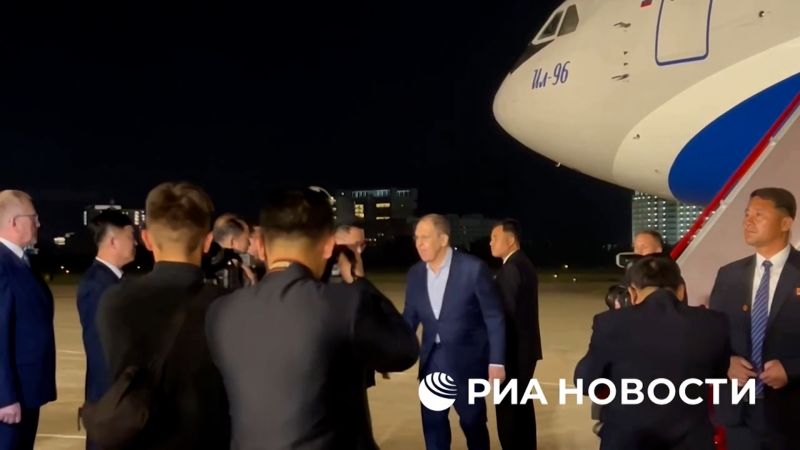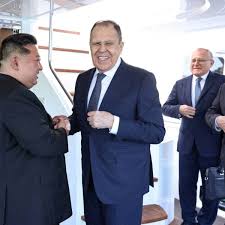Russian Foreign Minister Sergey Lavrov's recent visit to North Korea has stirred significant global interest due to Pyongyang's reaffirmed support for Russia's ongoing offensive in Ukraine. The meeting between Lavrov and North Korean leader Kim Jong Un marks a crucial moment in the deepening ties between the two countries. This alliance has been underpinned by North Korea's active military involvement in the conflict, with more than 6,000 North Korean soldiers losing their lives in the Russia-Ukraine war, as reported by British Defence Intelligence.
The show of solidarity from North Korea is a strategic move that aligns with Russia's military objectives in Ukraine. The assistance provided by Pyongyang includes the dispatch of not only troops but also military engineers and builders to aid in post-war reconstruction efforts. The heightened military cooperation between North Korea and Russia has raised concerns in the United States and South Korea, who fear that Kim Jong Un may leverage this alliance to enhance his nuclear capabilities through technology transfers from Russia.
The visit by Lavrov is part of a larger trend of high-profile diplomatic engagements between Moscow and Pyongyang. Russia's Security Council Secretary Sergei Shoigu has made multiple visits to North Korea in recent times, illustrating the importance that Moscow places on its relationship with the reclusive state. Last November, Russia and North Korea signed a comprehensive military agreement that included a mutual defense clause, cementing their strategic partnership in the face of international sanctions.
The significance of Lavrov's visit to North Korea is magnified by the context of global geopolitical dynamics. As tensions escalate in Eastern Europe, with the resumption of US weapons shipments to Ukraine following a brief halt, Russia's relationship with North Korea takes on added importance. The strategic implications of the Russia-North Korea alliance are being closely monitored by global observers, particularly in light of North Korea's history of engaging in provocative actions that challenge the existing global order.
The interplay between Russia, North Korea, and Ukraine serves as a microcosm of the complex web of alliances and conflicts that characterizes the modern geopolitical landscape. The convergence of interests between Moscow and Pyongyang in Ukraine underscores the fluidity of international relations and the shifting power dynamics that define contemporary world politics. Against the backdrop of escalating military hostilities and diplomatic maneuvering, the Lavrov-Kim meeting in North Korea encapsulates the intricacies of statecraft in a world fraught with strategic uncertainties.
In conclusion, the reaffirmation of support by North Korea for Russia's military campaign in Ukraine represents a pivotal moment in the evolving geopolitical landscape. The deepening ties between Moscow and Pyongyang, underpinned by military cooperation and shared strategic interests, highlight the intricate interplay of alliances and rivalries that shape international relations. As global powers jockey for position in an increasingly uncertain world, the Russia-North Korea alliance serves as a reminder of the complex interconnections that define the modern era of geopolitics.


